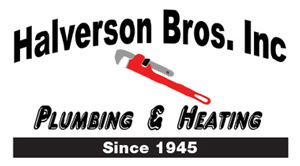
Have you ever performed a double take when you checked your last energy bill? Although high energy bills can be the consequence of extreme weather events, repeatedly high bills can often suggest an inefficient HVAC system or your home is misusing energy by other means, such as drafty windows or insufficient insulation.
One of the simplest ways to identify whether your home is consuming too much energy is by hiring a home service expert to carry out a home energy audit, also called a home energy assessment. Keep reading to learn more about home energy audits, including what they are and their key elements.
What Is a Home Energy Audit?
An energy audit is a comprehensive inspection of how much energy your home consumes and whether – and where – your home may be losing or wasting energy. An inspector will take a look at previous energy bills in the course of an energy audit to determine where energy is being consumed and how much.
The general goal of an energy audit is to help homeowners save money on their energy bills by suggesting energy-efficient improvements, which may include swapping out your existing HVAC system, adding new insulation, sealing up leaks, or replacing loose windows.
During the energy assessment, the auditor performs an inspection of the outside and inside of your home. The auditor completes a blower door test on doorways, windows and fireplaces to figure out if there are air leaks in your home. They’ll also inspect your home’s HVAC system, which also includes the ductwork, the water heater, and the insulation in your attic. Some assessments might also include inspecting your current lighting system.
Benefits of a Home Energy Audit
It can be hard for the ordinary homeowner to know for sure how efficient their home is versus other similar homes in their area. However, many energy companies often offer information about where your home stands in comparison to similar homes and whether it’s more efficient, about average, or inefficient versus your neighbors’ homes. This is a useful starting point to determine if you need an energy audit completed.
Some of the benefits of a home energy audit include:
Recognizing How Efficient Your Home Is
It’s worthwhile to understand how efficient your home is and where you’re consuming the most energy. For example, if your ducts are damaged, it will cause a large increase in your energy bills and additional wear and tear on your HVAC system as it has to work longer to fully heat or cool your home.
Making Energy-Efficient Improvements
An energy audit will expose where you need to make energy-efficient upgrades to conserve energy and decrease utility bills. This might include replacing worn-down weatherstripping or installing a new energy-efficient furnace.
Improving Health and Safety
Permitting air to leak into your home via doors and windows, or due to a lack of insulation can cause excessive moisture to appear, which could negatively impact your home’s humidity levels or encourage mold. This can cause health issues, especially for people suffering from asthma or allergies.
Adding to Your Home’s Retail Value
Energy-efficient homes are desired by homebuyers. You can sell your home much faster or for more money by demonstrating to prospective buyers that it’s energy efficient.
How to Do an Energy Audit of Your Home
Although performing an energy audit on your own will not be as comprehensive as calling a professional, it’ll offer a generalized idea of how energy efficient your home is. If you don’t discover any flaws during the DIY test, then you potentially don’t need to bring in a professional. Use this step-by-step checklist:
- Inspect your HVAC system. Damaged ducts can lose as much as 20% of conditioned air, contributing to steeper energy bills and excess strain on HVAC equipment. If you discover leaks, use duct tape to plug them. If your HVAC equipment is old and inefficient, upgrading to a new system can save you a considerable amount on your energy bills. In some cases, it can be better to hire a reputable HVAC company to inspect your system.
- Look for air leaks. Air leaks on average can raise monthly energy bills by 10 to 20%. Inside, look for air leaks in areas where you can find a draft, like along the edge of flooring and close to baseboards and electrical outlets. Outside, you can inspect for air leaks around the home’s foundation, siding and mortar. Plug, caulk or seal any air leaks to save money.
- Inspect insulation. If your home is older, it could mean your insulation is too. If you can see the joists, you likely need more insulation.
- Check ventilation. Ensure that all of your kitchen and bathroom exhaust fans are working properly, and inspect for evidence of rot or moisture.
Contact Halverson Brothers Inc for a Professional Energy Audit
If you would like professional help finding out how energy efficient your heating and cooling equipment is, call the HVAC experts at Halverson Brothers Inc today. We’ve proudly served the residents of Menomonie and western Wisconsin with quality home services for many years. Contact us today to request an appointment.






